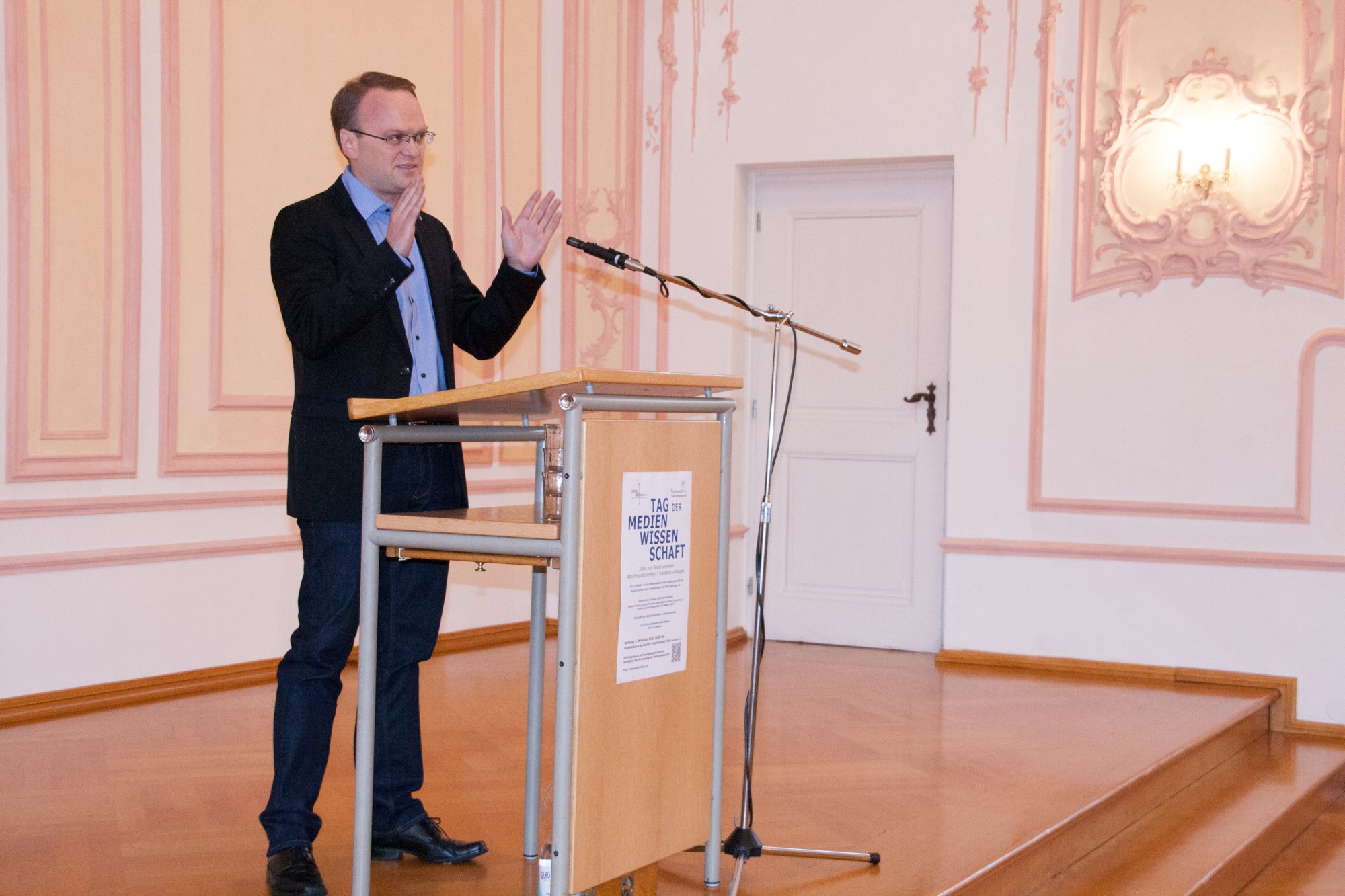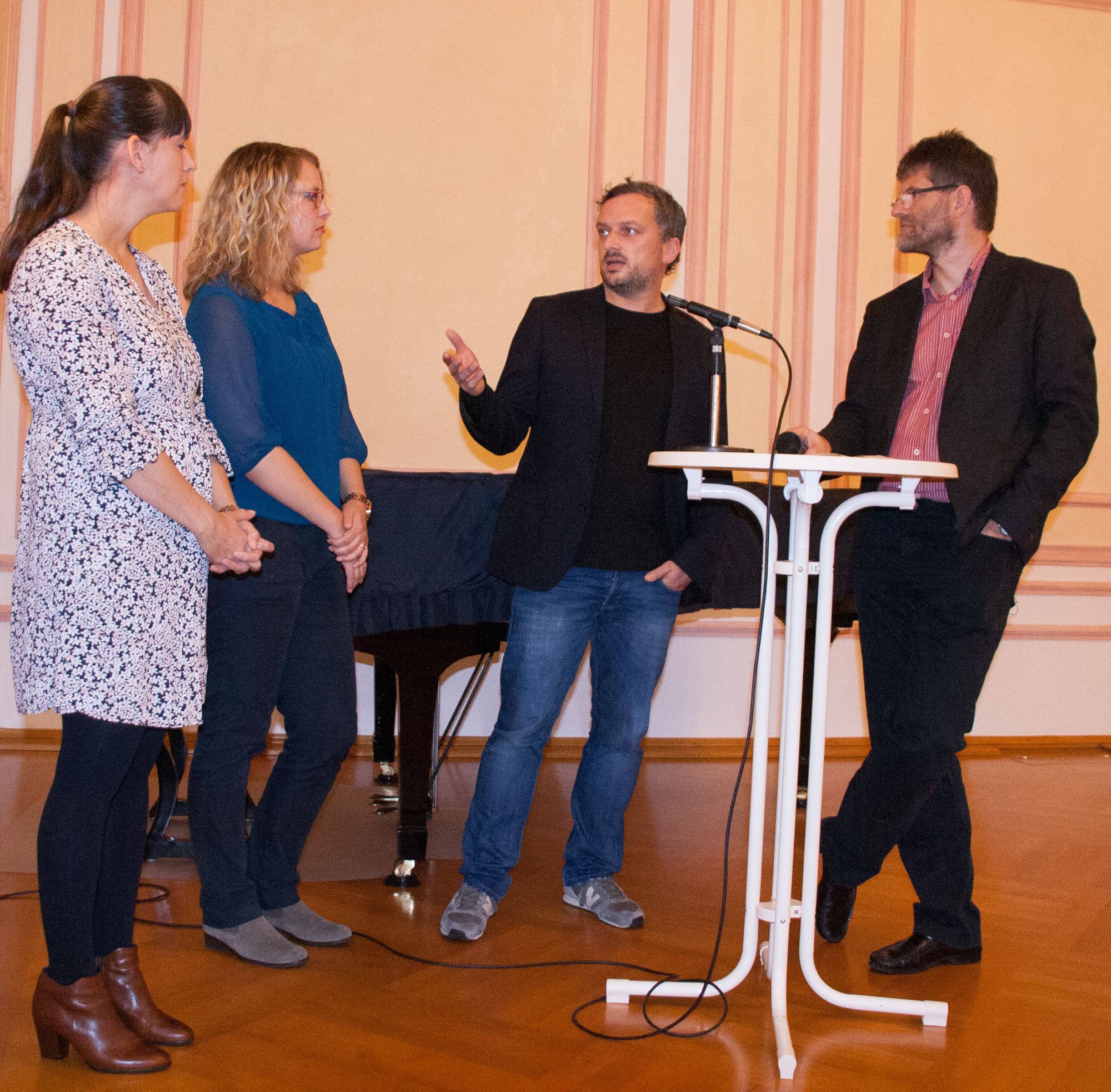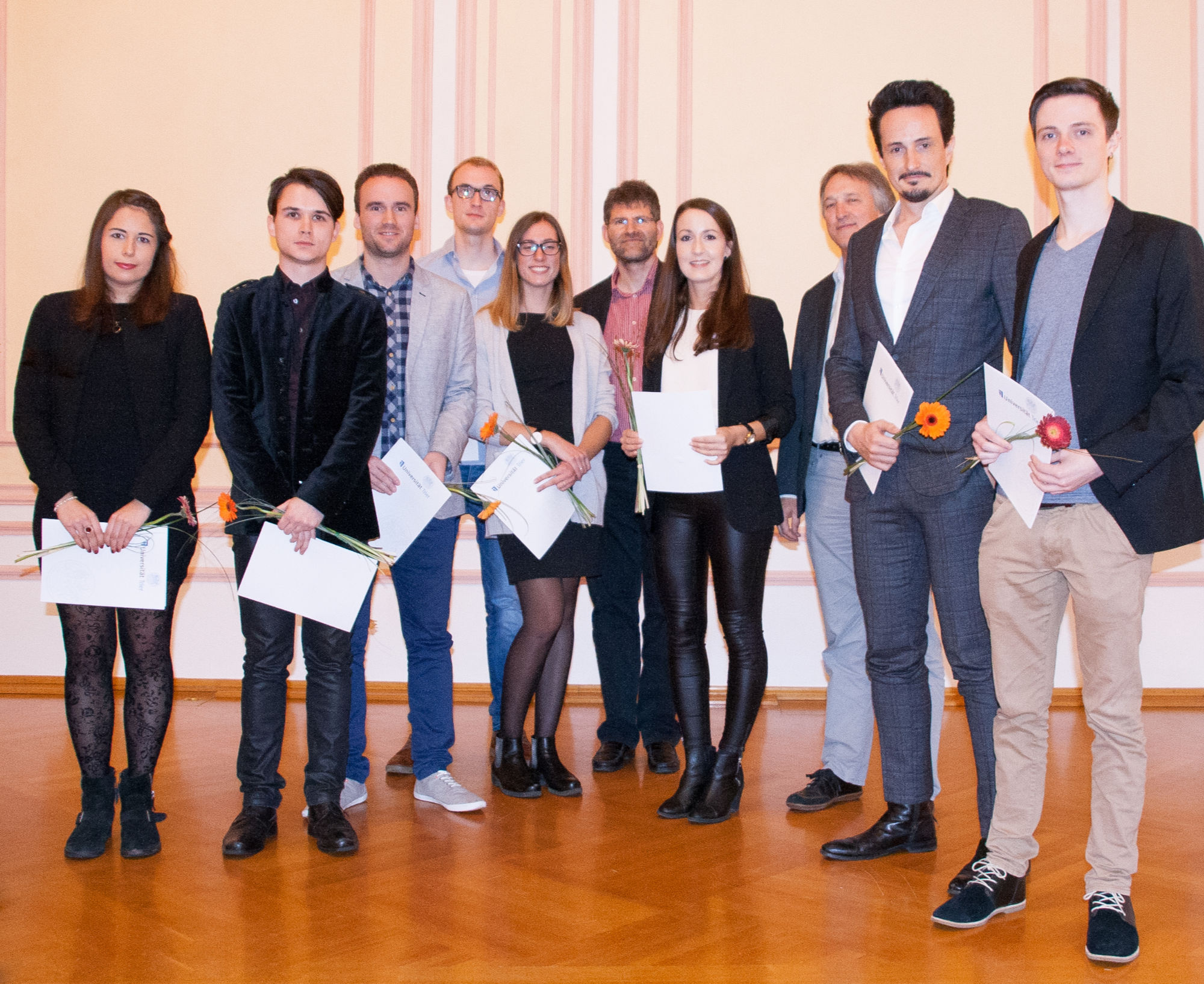Oliver Auster explains the digital change of the tabloid "Bild" Digital change in tabloid journalism
Few developments are so important for media studies like the change of media, caused by the digitalisation for about 20 years. At the day of media science on the 5th of November 2016, two topics covered this aspect: Oliver Auster explained how his employer, the German tabloid “Bild”, reacted to the challenge, and Corinna Trierweiler, Fabienne Aßmann, and Steffen Büffel spoke about the job chances of alumni of media studies.
Oliver Auster on the digital change of “Bild”
“Bild Reloaded – how the media change affected our brand” – this was the title of the keynote by Oliver Auster, alumni of media studies in Trier and editorial leader of the German tabloid “Bild” in North Rine-Westphalia (NRW).

Tabloid journalism in the age of digitalisation
“Bild is the radical orientation of journalism on the people”, was the definition of the brand of “Bild” that Oliver Auster gave at the beginning of his keynote. The core of the brand was “being talked about”, and he had impressive numbers serving as evidence: While the number of subscribers dropped from 4.3 to 1.96 millions since 2000, the tabloid still reaches ten million people due to shared content on the web.
But where is “Bild” going in the face of an edition cut in half? Digitalisation causes some things to die, the journalist explained, like the vinyl record – however, we are still listening to music, using iTunes or Spotify (I have to add at this place that there is still a group of vinyl lovers – on a way lower level than during the Golden Age, but growing). Music industry has thus succeeded in not having their content consumed on a purely illegal basis on the web.
There is no consistent approach in journalism. Bild.de is very successful, with over 19 million users. “Tabloid journalism is when the father asks in the kitchen: ‘Have you read what was in the Bild?’”, and the tabloid aims to transfer this moment to the web. The monthly time of use is about 50 minutes per user. And with “Bild Plus”, the tabloid has introduced a paid content model for selected stories.
The present is social and mobile
70% of the visitors use the home page as an entry. Position 2 is occupied by social media, Facebook in particular. This also has consequences for the contents. “Facebook Live is a revolution for us”, Oliver Auster explained, “Video is the topic of the coming years.” Accordingly, the tabloid has hired staff doing video, in order to realize exclusive stories, e.g. of a journalist accompanying a model while being tatooed.
There as an additional important finding: mobile first. “For us as media, there is nothing more important than the smartphone”, as more of half of views are created by mobile devices. In particular, Oliver Auster spoke of a significant growth in use of mobile video – but obviously, there are special aspects to consider: “90% of our videos are watched without sound, because the people do not have headphones on the go. Accordingly, our videos have subtitles.”
Mobile First also creates new challenges in other areas than video, in particular in order to sell advertising. Spikes in usage are in the mornings and in the evenings, when different topics are important than during the day – this also leads to a different focus.
Three theses for professional media
Oliver Auster closed his keynote saying that he does not want to make predictions. However, he had three theses for professional media:
- There is no substitute for professional media. For example, there were a lot of fake images circulating in social media during the rampage in Munich. Professional media play an important role in checking whether photos are real or not.
- Credibility creates sustainability for media.
- Professional media can only survive if they work together. A lot of publishers therefore took the step towards paid content.
Alumni talk about their work
In the following round table talk, moderated by Christof Barth, alumni spoke about their job roles and their daily work. We had Fabienne Aßmann and Corinna Trierweiler of Deloitte General Services in Luxembourg on the stage, as well as Steffen Büffel, self-employed media consultant (Media-Ocean).
Media change for a living

The start of the round table made clear that the digital change does not only affect brands like Bild, but also entire job roles. Following his academic career, Steffen Büffel found that the job he wanted to take did not exist. A lot of companies have not yet understood what was happening during the media change. He saw this as an opportunity, becoming self-employed as a media consultant. “My job is to put myself in the position of my client, taking them with me and accompanying them in their small steps”, he summarized his work. “In hindsight, I can say: I had a good timing, because today, the market is crowded with social media consultants.”
Corinna Trierweiler and Fabienne Aßmann also laid the ground of their way into marketing during studies. Languages (in particular English and French), software knowledge, and the experience developed during the frequent presentations proved to be valuable.
All participants agreed that the courses in media practice were important building blocks of a successful future “in the media”. Fabienne Aßmann told us that she had to answer many practical question about media, for example how to structure a press release – she was able to directly profit from her knowledge of the courses. Steffen Büffel agreed and said, the frequent contact to media practitioners made the difference, because even today a lot of job roles do not really exist with a defined name. “But, we experienced the media change in our own lifes”, the media scholar concluded. This blueprint can be transferred to other developments.
Perspectives for alumni of media studies
Accordingly, the summary regarding the job perspectives of alumni of media studies was pretty positive, although there has been a significant change. “Some alumni still find their way into journalism, but fewer than in former times”, Christof Barth summarized his impression. The participants had made similar observations: A lot of freelance journalists are afraid of not finding enough jobs, and even some publishers have trouble recruiting people for their trainee positions. However, this does not mean that there are no job perspectives for alumni of media studies.
“You have to know what you want, but also be prepared to change yourself if necessary”, Steffen Büffel explained and encouraged not to be afraid. This includes networking. In doing so, you should not only focus on the exam itself, but use your whole personality. This often creates new opportunities in networking.
Corinna Trierweiler additionally stressed the possibility of internships. “You can try different jobs for a limited time, realizing what you want. Normally, you find where you want to go during the job.” The master is also valuable, because it is more prestigious and often makes a financial difference.
Tribute to the alumni
Like in the past years, the event closed with the tribute to this year’s alumni. Their work showed an impressive range of topics in media - congratulations to your work!
